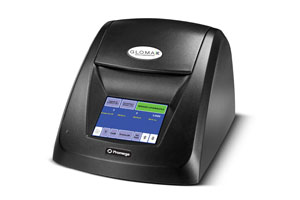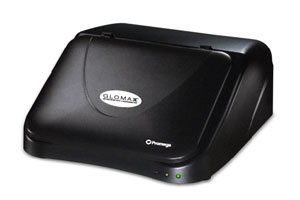应用文献-Transcriptome sequencing to detect gene fusions in cancer
已下载2887次 / 原平皓生物
简介:
Transcriptome sequencing to detect gene fusions in cancer
Christopher A. Maher1,3*, Chandan Kumar-Sinha1,3*, Xuhong Cao1,2, Shanker Kalyana-Sundaram1,3, Bo Han1,3, Xiaojun Jing1,3, Lee Sam1,3, Terrence Barrette1,3, Nallasivam Palanisamy1,3 & Arul M. Chinnaiyan1,2,3,4,5
Christopher A. Maher1,3*, Chandan Kumar-Sinha1,3*, Xuhong Cao1,2, Shanker Kalyana-Sundaram1,3, Bo Han1,3, Xiaojun Jing1,3, Lee Sam1,3, Terrence Barrette1,3, Nallasivam Palanisamy1,3 & Arul M. Chinnaiyan1,2,3,4,5
Recurrent gene fusions, typically associated with haematological malignancies and rare bone and soft-tissue tumours1, have recently been described in common solid tumours2–9. Here we use an integrative analysis of high-throughput long- and short-read transcriptome sequencing of cancer cells to discover novel gene fusions. As a proof of concept, we successfully used integrative transcriptome
sequencing to ‘re-discover’ the BCR–ABL1 (ref. 10) gene fusion in a chronicmyelogenous leukaemia cell line and theTMPRSS2–ERG2,3 gene fusion in a prostate cancer cell line and tissues.Additionally,we
nominated, and experimentally validated, novel gene fusions resulting in chimaeric transcripts in cancer cell lines and tumours. Taken together, this study establishes a robust pipeline for the discovery of
novel gene chimaeras using high-throughput sequencing, opening up an important class of cancer-related mutations for comprehensive characterization.
sequencing to ‘re-discover’ the BCR–ABL1 (ref. 10) gene fusion in a chronicmyelogenous leukaemia cell line and theTMPRSS2–ERG2,3 gene fusion in a prostate cancer cell line and tissues.Additionally,we
nominated, and experimentally validated, novel gene fusions resulting in chimaeric transcripts in cancer cell lines and tumours. Taken together, this study establishes a robust pipeline for the discovery of
novel gene chimaeras using high-throughput sequencing, opening up an important class of cancer-related mutations for comprehensive characterization.


